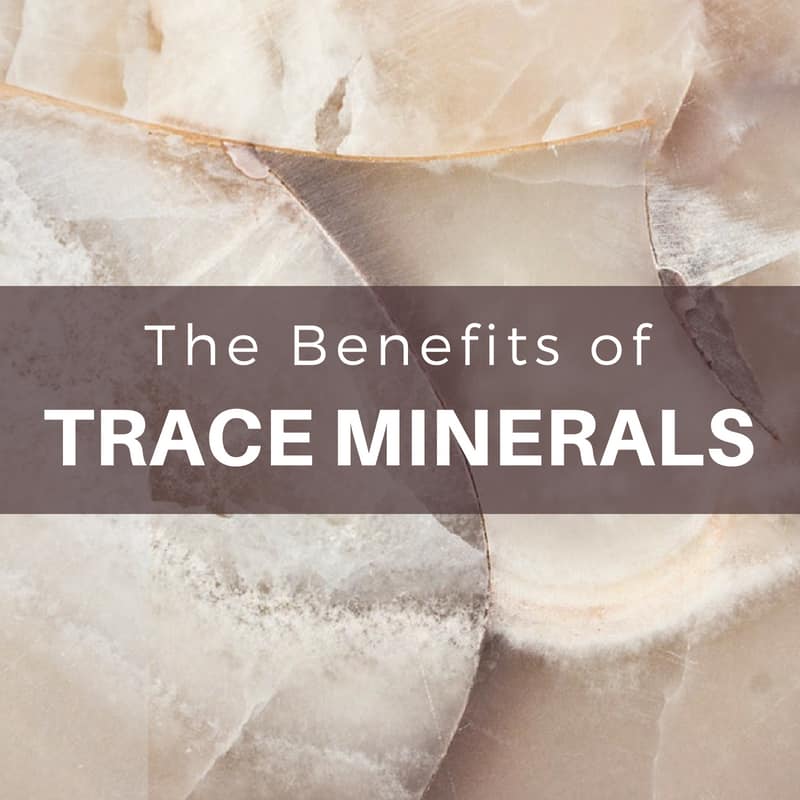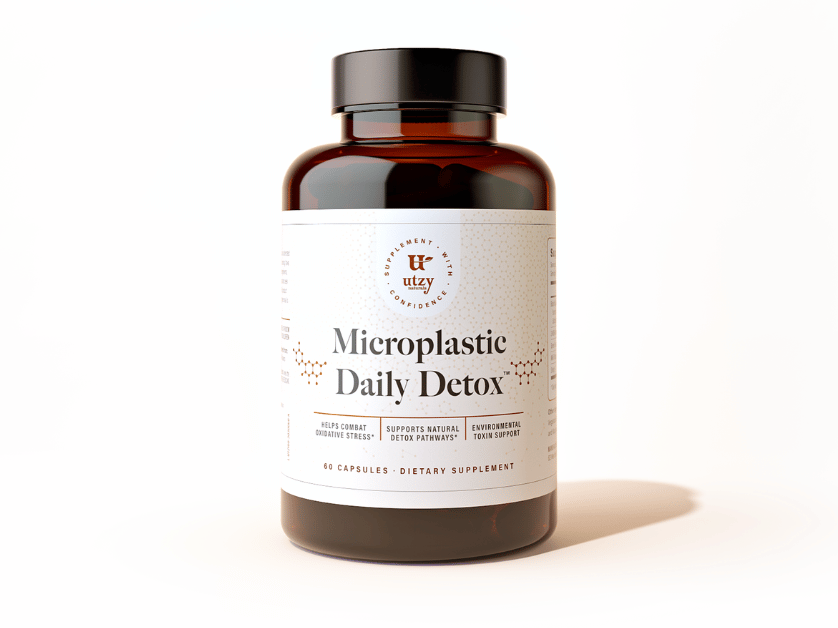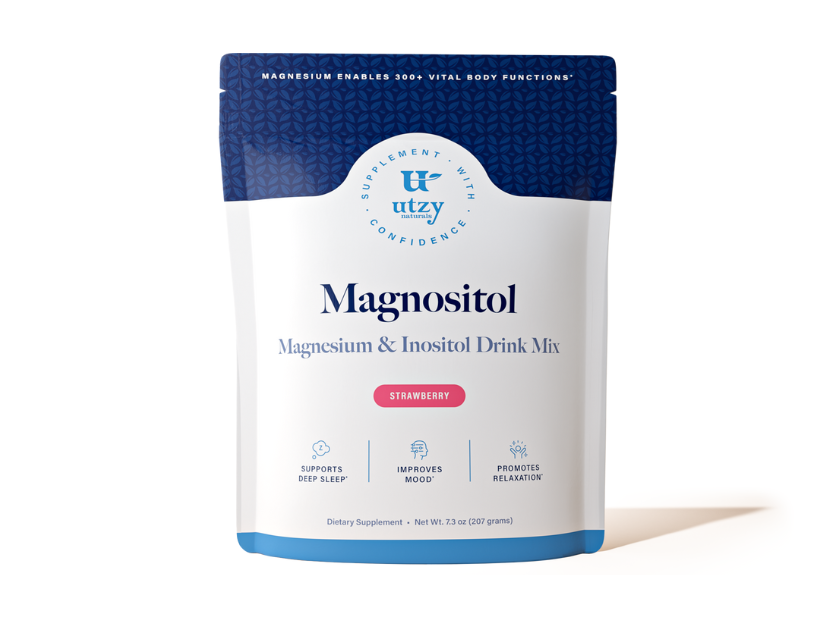shop
learn

Trace Minerals: The Complete Guide To Why You You Need Trace Minerals
August 29, 2018 7 min read
We all know about macronutrients: protein, carbohydrates, and fat. These three nutrient types make up the calories that we eat on a daily basis.
But macronutrients aren't everything when it comes to diet.
Micronutrients are just as important for your health and wellness.
But when was the last time you considered micro-nutrients such as trace minerals for your health?
Perhaps overlooking these important, lesser-known minerals is what’s preventing you from reaching optimal health and well-being.

What Are Trace Minerals?
Trace minerals are minerals that your body only requires in small amounts each day. They are infrequently talked about compared to the major essential minerals like calcium, iron, and sodium - but trace-minerals are just as important!
Your body needs larger amounts of essential minerals on a daily basis, for example, nutritionists recommend that you get 1,000 milligrams of calcium per day.
Essential minerals can easily be found in food sources, such as dairy products (calcium) and beef (iron).
Trace minerals are needed at much lower levels. To be more precise, your body needs approximately 20 milligrams of each trace mineral on a daily basis. Examples of trace minerals include copper, selenium, iodine, and zinc.
Even though trace minerals are only required by your body’s cells in small amounts, it would be a mistake to assume that you’re getting enough of them through the food you eat (since you only needed a small overall amount).
The Reason Why We're Defficient In Trace Minerals
We have traditionally gotten the minerals we need through eating naturally grown fruits and vegetables, which pull minerals and other nutrients from the soil they are grown in.
However, due to aggressive 21st century farming practices, the soil that produce is grown in is devoid of minerals and other needed nutrients. Instead of cultivating soil and naturally enriching it, most modern farmers simply pump chemicals into their fields so that they can grow crops as quickly as possible.
This produces fruits and vegetables, that, while they look good on the outside, are woefully lacking in nutrient content. All of this means that the food you buy doesn’t contain the nutrient levels that you should expect.
Humans, and all animal bodies, need a small amount of trace minerals for many different functions of our bodies. Nutrients like iodine, zinc and sulfur are crucial for proper functioning of our immune systems.
Others like magnesium, copper and manganese are important for the structure of our bones, skin, hair and nails. We use these trace minerals in our Essentially-U multi-mineral formula.
Eventually, your body’s specific functions could begin to fail if it doesn’t receive appropriate amount of these trace minerals.
One quick note before we move on, Organic foods tend to be higher in nutrient density (you can read our article on this topic here). If you eat predominantly organic and naturally grown foods (from farmers markets), your chances of getting enough trace minerals in your diet is much higher.
That being said, certain soil types will contain less of different types of minerals. So, for instance, if you eat a perfect diet, but the soil in your area is low in selenium, you will still be deficient in selenium.
This is where a high quality multi-vitamin/mineral supplement comes into play.
It gives you daily insurance that you are getting all of the nutrients that you body needs. Check out our Essentially-U formula, it contains 7 different trace minerals, as well as all of the essential minerals and vitamins that your body needs.
How To Get Trace Minerals in Your Diet?
Since there are so many different types of nutrients and nutrition-related topics, oftentimes trace minerals don’t get the attention they deserve.
If you only see a general physician once a year for a checkup, there’s no way that they covered all the nutrition bases with you. Even for a nutritionist, it may be hard to consider everything for each unique individual because our lifestyles are so varied.
It’s pretty easy to get caught up in calorie/protein/fat counting and to forget about the minor aspects of your diet.
Common Trace Mineral Defficiencies
Perhaps we are so focused on the macro nutrients like fat and protein that we completely disregard the little guys. That’s usually what weight-losers do, which makes them specifically vulnerable to trace mineral deficiency.
Other groups most at risk for being deficient include pregnant women, people who underwent surgery recently, vegans, the impoverished, athletes, and those who prefer a poor diet.
Since there are many different trace minerals to consider, which provide their own unique functions for our health, many different types of complications can arise due to deficiency.
For instance, deficiency in zinc or sulfur can stunt our immunity and leave us vulnerable to disease and toxic poisons. Deficiency in copper and magnesium can lead to brain function decline, which may be observed as mood issues, trouble concentrating, and a hard time remembering things.
Best Sources of Trace Minerals
So where exactly can you get trace minerals from foods in your diet? Well, one way to get them is by consuming fresh, raw, organic fruits and vegetables.
Since non-organic, conventional crops are constantly turned over as we described, you are at risk of being deficient in trace minerals when you eat them.
Organic foods are grown in a natural way that doesn’t abuse the soils. Although these foods still aren’t guaranteed to have a complete nutritional profile, they are much more likely to contain an appropriate amount of important trace minerals.
Some types of minerals like selenium and iron are found in high amounts within organic meats. This may be why nutritionists warn vegetarians about hormone balance caused by selenium deficiency.
If you belong to any of these high deficiency-risk groups, then have no more worries at all! Thankfully, medical science has allowed supplements to be more effective in their more natural and bioavailable forms - their chelated forms.
Chelated minerals are basically the free-mineral version of a nutrient, unlike the typical salt version of the mineral we have been used to seeing in multi-nutrient supplements. To better explain, you might be familiar with “calcium carbonate.” This is a calcium compound in salt form, also known to the chemistry world as an ionically-bonded compound.
The salt form of a nutrient has been proven to be less bioavailable, or less absorbable by our bodies, than chelated minerals. The reason for this is because salts require a specific pH level to be broken up, digested and then absorbed. Most of the time, your digestive system doesn’t provide the correct pH balance for each salt compound.
Chelated minerals are different because they don’t need any specific environment to be absorbed and they don’t need to be consumed with food.
You can simply take one of these supplements and it should be quickly available to our bodies because the chelated form is the “free” form that is not connected to a salt needing to be broken down with specific environmental conditions.
Utzy believes in the efficiency of chelated minerals and has a well-reviewed multi-mineral supplement called Essentially-U.
The Most Important Trace Minerals
Below we'll go into detail on 6 of the most important trace minerals to consider. You'll want to make sure that you are getting enough of these minerals in your diet.
Iodine: Important for hormone balance
Iodine is arguably the most important trace mineral that our bodies require, specifically for the way we all live today as opposed to a few hundred years ago. It’s crucial for our thyroid gland, which assists with managing and balancing the hormones we need for proper function.
You can find iodine in high amounts with dark green sea vegetables like kelp. Some doctors highly recommend a daily iodine supplement to combat the extremely high levels of fluoride that we consume from water and toothpaste. Despite if you believe fluoride helps or not, evidence is proving that it may kick out iodine from our bodies and fit itself in because they are both halogens, very similar atoms. However, only iodine is useful for our thyroid glands.
Zinc: Immunity and Fertility
Zinc is super important for immune-function, hormone balance, fertility and disease-fighting. Since you can usually obtain enough through consumption of organic meats and eggs, this may be why it is recommended for vegetarians to take a zinc supplement.
A chelated multi-mineral may be the best and most convenient source of this trace mineral. Signs of zinc deficiency may include frequent colds, pale skin, or skin problems like acne or eczema.
Selenium: Fertility and Hormone Balance
Selenium is known for the way it helps to support balanced hormones as well as fertility. It’s important for the connectability of tissues throughout our bodies and it is most strongly concentrated in our bones (you can learn how to strengthen bones here).
This trace mineral may also protect against illness and health complications because of its antioxidant abilities. It also protects from cognitive decline and hormone imbalance. Those with pre-existing conditions or cognitive disease will benefit greatly from selenium.
The best sources of selenium, besides a chelated mineral supplement, are from nuts, seeds, brown rice and eggs.
Sulfur Benefits: Immunity and Anti-Pathogen
Sulfur is introduced to the soil and absorbed by plants after the remains of a volcanic eruption have broken down into fertile ground. This might be why so many people are at risk for developing sulfur deficiency.
This trace mineral is very important for immunity because it helps your body build anti-pathogenic compounds. We are all familiar with sulfites and sulfa drugs, the original antibiotics. Sulfur from foods can provide these protective benefits as well.
Deficiency of sulfur can present itself in a wide range of conditions. That includes any type yeast overgrowth, cold and any other disease that is caused by an invading organism. The best sources of sulfur from foods are raw garlic, onions and eggs.
Copper: Enzymes and Energy Production
Did you swallow your daily penny today? Just kidding, but copper is a trace mineral that we all need to obtain from our diet for energy production, bloodflow, digestion and cognitive function.
Copper deficiency can show itself as fatigue and lack of motivation.
In addition to that, you may find that your digestion isn’t that great and the same for your ability to remember things. The best food sources of copper include beans, shellfish, nuts and grains. We also include copper in our Essentially-U formula.
Manganese: Bone and Skin Structure + Antioxidant
Despite it’s similar name to magnesium, manganese is an important mineral for overall health. Manganese is a trace mineral that is crucial for the structure of our skin and bone cells. It’s also a big factor for our blood and joint health.
Signs that you may need more manganese in your diet include bone degeneration, soreness or constant cracking of your joints, and poor skin quality.
The best food sources of manganese include leafy greens, brown rice, oats and lentils. You can also find manganese in supplement form.
Leave a comment
Comments will be approved before showing up.
Also in Ingredients
Subscribe
Sign up to get the latest on sales, new releases and more …
Join the Utzy Naturals Club!
Sign up and get the latest on sales, new releases, and more...








